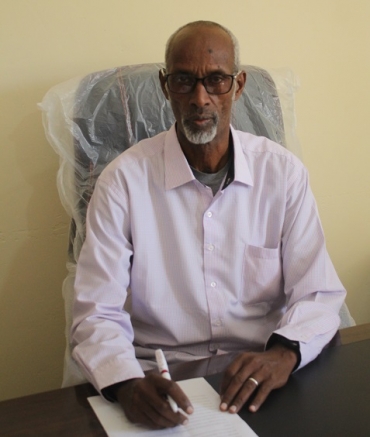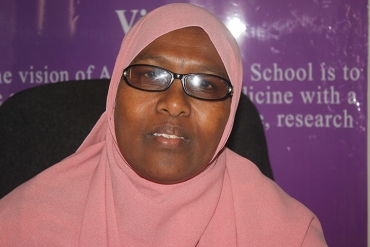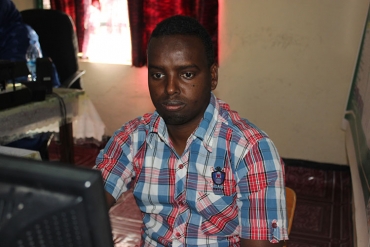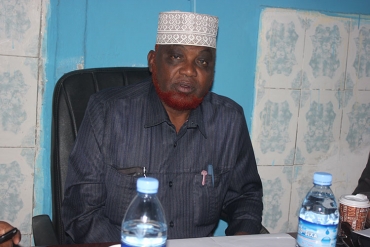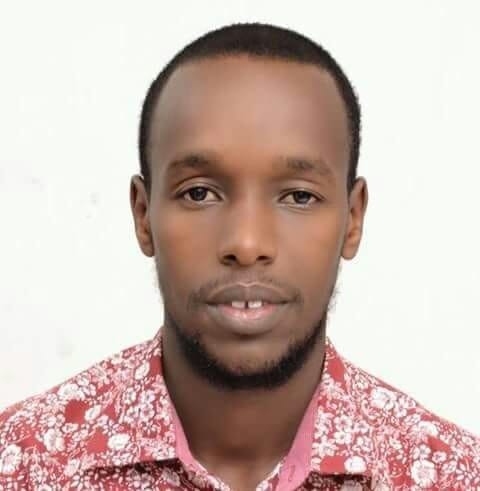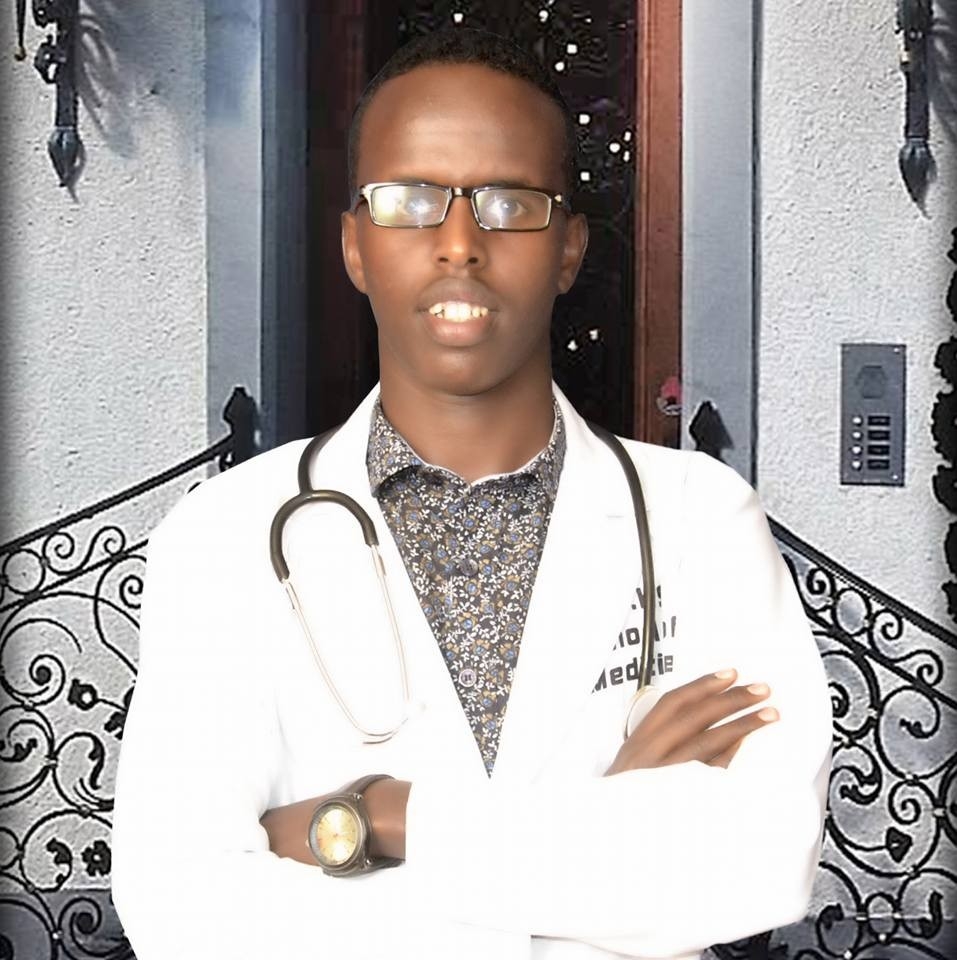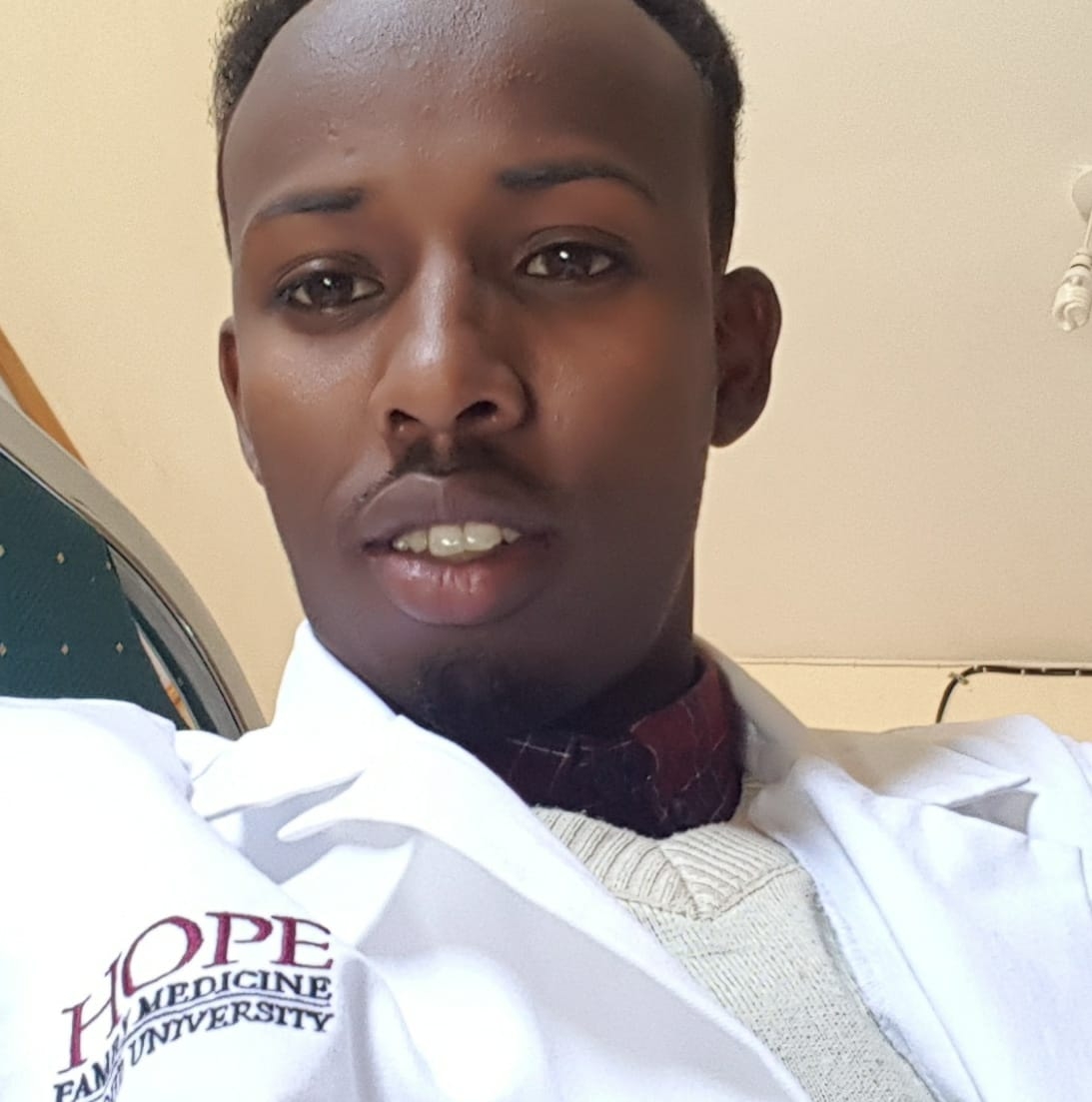
Amoud Web Team
It was established in the academic year of 2010-2011 with the aim to produce medical technologist with knowledge, skills and attitudes who are able to fill the gap in the health working force of the laboratories. Its academic program is designed for four years of study leading Bachelor of Medical Laboratory Technology (BMLT).
It’s curriculum is community oriented education and combines theoretical knowledge of the basic natural and medical sciences with the skillful use of sophisticated equipment and techniques to provide vital information that may be required for diagnosis and treatment of diseases, quality control, quality assurance and research to formulate the policies and measures for the prevention of diseases. The educational program is designed to produce professionals who can use the knowledge they have acquired to develop their countries and improve the quality of lives of their people.
There are Inadequacies in laboratory infrastructure and a low national priority and neglected, not only because of more pressing health problems and emergencies but also because of lack of manpower, skills and equipment which finally leads to underutilization of laboratory services available. Health care programs dictated by donor agencies often do not consider broader regional needs or make provisions for overall sustainability.
The migration of skilled laboratory personnel due to the civil unrest deteriorates the situation. The majority of hospitals cannot consistently provide even these basic services in a quality-controlled fashion. unreliable and inaccurate laboratory diagnostic testing leads to unnecessary expenditures in a country already plagued by resource shortages, promotes the perception that laboratory testing is unhelpful, and compromises patient care. Amoud School of lab technology was established to initiate new source of producing skilled laboratory personnel to ensure accurate laboratory services that contribute well to the patient care and secure physicians' confidence in applying laboratory results to their daily practice.
The curriculum is community oriented education with emphasis on self-learning to develop in the students the ability and willingness to pursue their own learning after graduation to become competent lab technicians and community oriented.
The School is also commited to advance knowledge about health through research in all areas related to health care including basic science, clinical science education and studies related to methods for the delivery of health care
Amoud Nursing School was established in the academic year 2006-2007. Its academic program is designed for four years and is to meet the educational requirements of the nursing students who are enrolled in the Baccalaureate nursing program at Amoud University. It is the first nursing school in Somaliland/Somalia which offers a degree programme in nursing. The purpose of the Baccalaureate Nursing Program at Amoud University is to provide quality nursing education which prepares graduate students for professional nursing practice as generalists. It Prepares graduates who will be able to contribute to the development of nursing education, nursing administration, nursing research and address the challenges facing the healthcare system of Somaliland /Somalia.
The courses in the curriculum emphasize communication skills, critical thinking, professionalism and the development of lifelong learning. Curricula will be built around an integration of knowledge and practice and will focus on a holistic view of individuals, groups, families and communities. The program will help them acquire a range of professional nursing skills that will enable them to work with clients in a variety of areas such as health promotion, prevention, acute and chronic care. Graduates of the Baccalaureate Nursing Program will be able to: Function effectively as nurses in a hospital and in a community setting. Exhibit personal and professional development responsive to change nursing, healthcare and society, develop professional and leadership skills to design, coordinate and improve the healthcare system of Somalia.
Concerning maternal and neonatal health more than 90% of women deliver at home and more than half are assisted by a traditional birth attendant. Access to skilled delivery care and emergency obstetric care is poor and rural and nomadic populations are virtually without access to timely obstetric intervention. The present pool of qualified reproductive health staff is small, aged and under-trained with a grave shortage of qualified midwives. Urban clustering of qualified midwives and doctors leaves rural areas relying heavily on auxiliary staff, most of who are inadequately trained for their job. Doctors are presently graduating in small numbers whilst midwifery education does not exist all. Because of this Amoud Nursing School has recognized the value of the midwifery education programme due to the urgent need to address maternal health issues which had been neglected for the last decades and started a Bachelor of midwifery dividing its students at second year of study. One group studies general nursing and the other group studies midwifery and Diploma of community midwife to increase the access both for the rural and urban areas to fill the gap in the working force of the reproductive health.
The Community midwifery curriculum uses the same structure and principles as the Post-basic midwifery programme. Indeed many of the learning experiences are the same despite some differences in job description. It differs mainly in their level of knowledge and understanding of the theory and evidence that underpin midwifery practice. The educational Programme presents broadly a core content addressed at different levels In order to achieve designation as skilled birth attendants (WHO undated) and fulfil the ICM Definition of the Midwife (ICM 2011 and Annexe 1) and the Essential Competencies for Basic Midwifery Practice (ICM 2010a and Annexe 3) and to address the indicator of proportion of deliveries attended by skilled birth attendants for MDG 5.
Strengthening Midwifery Faculty teachers
Amoud University has successfully established the School of Nursing and so far has graduated four groups of nurses with BScN. The university has also enrolled students for a community midwifes training for the rural districts and villages of Somaliland. The vision for the community midwifery programme is that women selected by their communities for rural and remote areas of Somaliland to serve them as midwives will be able to meet the requirements of the 2011 international definition of the Midwife and the 2010 essential competencies for Basic Midwifery practice.
Amoud College of Health Sciences aims to train professionals with higher education and qualified for the respected professions. To produce well trained midwifes, the faculty of nursing and midwifery needs to have expert midwife teachers to implement the BScN midwifery program as well as the community midwifery program. Therefore, strengthening the midwifery faculty teachers is a priority .This project will help us train a two year post BScN midwifery teachers. The graduates of this program will be able to teach in the midwifery school.
Amoud School of Nursing has started the postgraduate study of nursing education and is designed to prepare students to meet established nurse educator competencies. Students acquire knowledge, develop skills, and internalize values needed for success as a nurse educator in areas and are to upgrade the teaching capacity of the nurses interested in teaching nursing programs or in staff development departments.
The curriculum involves a rigorous and complementary combination of clinical and professional content with a focus on teaching and learning, the evaluation of learning, course development and curriculum/program development and evaluation. It also emphasizes evidence-based teaching practices to help students develop as educational scholars who can contribute to the development of the science of nursing education.
Master of Nursing (MSN) in Sexual Reproductive Health is a distance learning program offered by Amoud University and Faculty of Nursing of Dalarna University (Sweden). It will enable the students to perform research and management issues which are pertinent to reproductive health nursing problems and manage patients in clinical areas. The program is offered by Dalarna University through online lessons. Students will also be completing clinical placements in hospitals mainly in Borama and Primary health care centers. This program is only available to Registered nurses with at least one year of clinical practice prior to applying for this program. The mission is to create knowledge through research, produce future leaders, future instructors and define this advanced practice in Sexual and Reproductive health in Somalia/Somaliland.
Amoud University Office of The Chief Registrar
Main Campus, Amoud University, Amoud Valley, Borama, Awdal
Email: This email address is being protected from spambots. You need JavaScript enabled to view it.
1. Chief Registrar
Mr. Suleiman Hassan Ali
Tel: +252634451294
2. Deputy Registrar
Mrs. Fatuma Ali Mohamed
Tel: +252634450700
3. Deputy Registrar - In Charge of Examinations Department
Mr. Mohamed Nour Dahir
Tel: +252634108272
Malcolm Gladwell, the author of Outliers and other thought-provoking books, has an interesting theory about success. In his view, “it isn’t the brightest that succeed, but rather those who have been given opportunities and who had the strength and presence of mind to seize them.”
Welcome to the Amoud College of Health Sciences which aims to produce competent Health professionals who are able to deal with the prevailing health problems of our country. It is the first training Health institution opened after the collapse of the Somali Government. Training facilities were one of the main casualties. It was destroyed, damaged or simply abandoned as result of insecurity and unfortunately training ceased to function at all levels. A large number of youth turned to criminal activities while many emigrated to Western Europe and North America under the pretext of seeking higher education.
The present and future impact of Amoud University as a whole in the Somali context is self-evident and cannot be underestimated. Within the first months of its existence the news of the birth of Amoud University had an amazing reawakening effect on a public devastated by a series of conflicts and mis-governance and helped energize the whole system of education. It has restored a great measure of hope and pride among the people providing much-needed self confidence after years of helplessness and desperation. The establishment of Amoud College of Health Sciences has tremendous psychological impact on the thinking of the people when it is extraordinary vision turned into a reality after witnessing the first batch of newly graduated Medical Doctors in mid 2007.
Our curriculum is solid and forward-looking( Community-oriented Education), reflecting the environment our product will face in practice, and our physical plant is growing rapidly, with a substantial number of building projects either under way or on the drawing board. Our greatest assets are our community, our dedicated and hard-working teaching and administrative staff; many of whom are internationally known, our students who come from various backgrounds with the impeccable academic credentials.
Emphasis is put on collaborations between the different schools, self-direct learning of the students and the expectation that students take more than the usual responsibility for their education and contribute to the communities while they are in their education through designed community activities of Amoud Health Sciences.
To fulfil this target and equip its graduates with the knowledge, skills and attitudes necessary for the practice of their different fields. Amoud Health Sciences uses different training sites with all the health staff contributing to the training. We use the existing hospitals (Borama General Hospital, Allaaleh Hospital and Al-Hayatt hospital) three health centers, five MCHs and two community sites in which the students are given the opportunity of coming in contact with the communities they will work for after finishing their studies.
Building the human resources for the health system of a country should not only include healthcare professionals like physicians and nurses but must take into considerations also all health professionals such as pharmacists, lab technicians, dentists and public health to address the basic health needs of its communities. doctors, nurses, dentists, pharmacists, lab technicians, radiologists and technicians and public health officers are educated separately, but in the real world have to work together and in teams. Amoud College has started new initiative of training them together using our minimum resources we have and training sites.
The new graduates are expected to serve anywhere in the country and will be distributed to areas with the greatest need. Special attention is paid to the quality of medical education and allied health professionals training throughout, starting from admission to graduation and assessed thoroughly by external bodies from the King’s College Teaching Hospital of London with which we have a partnership.
Amoud College of Health Science is the most rapidly growing institute of Amoud University and strives for academic excellence. It has started with 15 students and three lecturers and has now 753 students and 73 lecturers. It has produced 56 doctors, 99 nurses (first Nurses with BScN Degree in Somaliland and Somalia), 12 dental surgeons, 6 diploma dental technicians, 6 nurse anaesthetistics and 20 community midwifes. Its product has reached every region of Somaliland and Somalia and has contributed to the provision of health services of the country. This outstanding success for the last 10 years was attributed to the creativity, boldness of vision, commitment and clarity of thought of its management, teaching and administration staff.
Finally I wish to express my deep gratitude to all those who contributed to this noble activity which has restored a great measure of hope and pride among the youth and provide much needed confidence after years of helplessness and desperation ‘‘ONLY ALLAH WILL REWARD YOU’’
Prof. Said Ahmed Walhad
Principal
Amoud College of Health Sciences
Email: This email address is being protected from spambots. You need JavaScript enabled to view it.university.org
Tel: +252 63 4455191
 English
English

